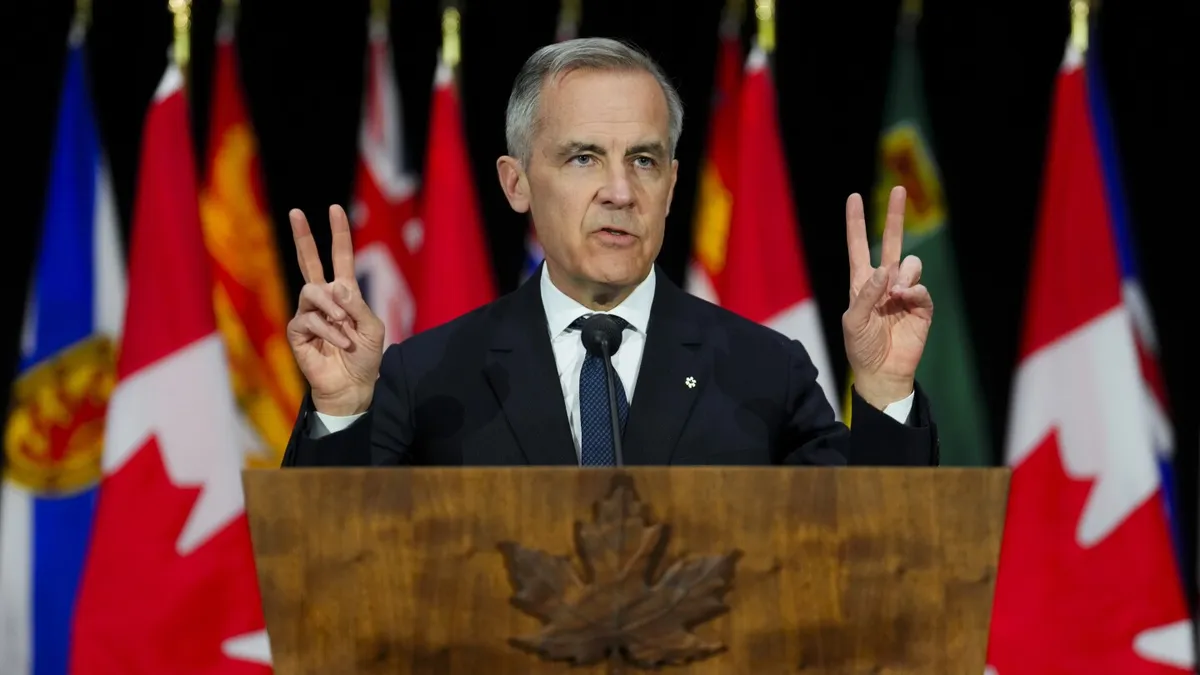
TORONTO (AP) — In a significant political move, new Canadian Prime Minister Mark Carney has announced his candidacy for Parliament in the Ottawa area district of Nepean. This announcement was made by the Liberal Party on Saturday, just a day before Carney is expected to call for an early general election, slated for April 28. This election comes amid a tense environment characterized by a trade war and challenges to Canadian sovereignty posed by U.S. President Donald Trump.
The Liberal Party highlighted Carney's deep ties to the region, emphasizing that he raised his family in Ottawa and has dedicated his career to public service. Carney brings a wealth of experience to his campaign, having previously served as the head of Canada’s central bank and as its deputy governor. The upcoming election will involve all 343 seats in the House of Commons, with a campaign duration of 37 days. The party that secures a majority—either independently or through coalition support—will form the next government, with its leader assuming the role of prime minister.
Carney's rise follows the resignation of former Prime Minister Justin Trudeau, who announced his departure in January but remained in office until a new leader was chosen on March 9 after a leadership contest within the Liberal Party. Sworn in as Canada’s 24th prime minister on March 14, Carney has expressed the need for a strong and clear mandate from the electorate during these challenging times.
Initially, the governing Liberals appeared to be on the brink of a historic election defeat. However, the political landscape shifted dramatically following Trump’s announcement of a trade war, which he has suggested could lead to Canada becoming the 51st U.S. state. Trump's remarks have inflamed Canadian sentiments, resulting in a surge of nationalism that has unexpectedly bolstered the Liberal Party's standing in the polls.
On the other hand, the opposition Conservative Party, led by Pierre Poilievre, aimed to frame the election narrative around Trudeau’s leadership, particularly in light of rising food and housing prices and increased immigration. Yet, the focus of the election is now anticipated to center on which candidate is better prepared to handle the ongoing pressure from Trump. The U.S. president has imposed a 25% tariff on Canadian steel and aluminum while threatening further tariffs on all Canadian goods, as well as on products from other international partners, effective April 2.
As of now, Carney has not yet engaged in any conversation with Trump, and it seems unlikely that a dialogue will occur before the election. Trump has previously ridiculed Trudeau by referring to him as a "governor," but has yet to comment on Carney directly. At 60 years old, Carney is recognized for his leadership during the 2008 financial crisis as the head of the Bank of Canada, and later became the first noncitizen of the United Kingdom to lead the Bank of England, where he also managed the ramifications of Brexit.
Poilievre, aged 45, is Carney’s leading opponent in this electoral race. The Conservative Party was once on track for a significant victory in the federal election, but Trump's frequent trade threats have complicated their campaign. Known as a populist and a fierce critic of mainstream media, Poilievre has vowed to prioritize "Canada first" in his policies. He has also promised to defund the Canadian public broadcaster, reflecting his contentious relationship with media outlets. Notably, his party has announced it will not permit media access to his campaign buses and planes, further emphasizing the growing divide in Canadian politics.